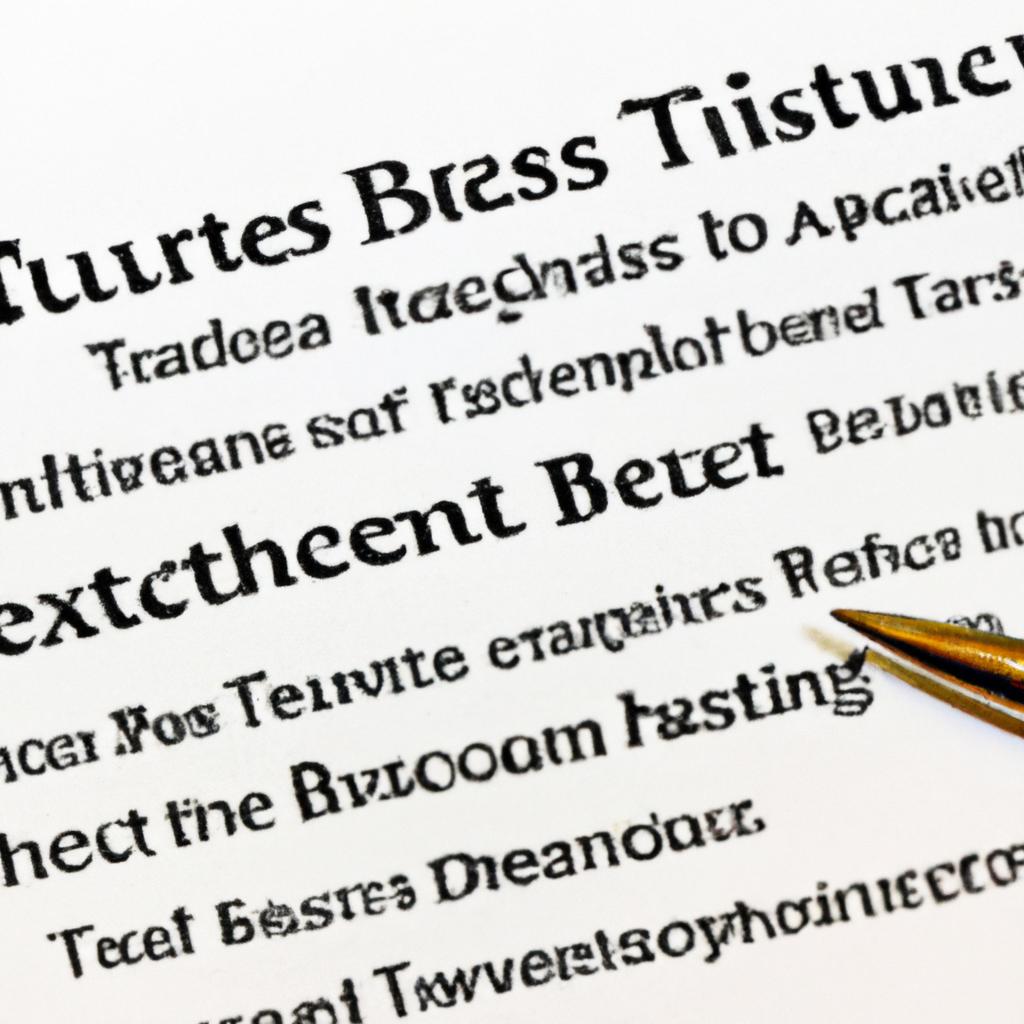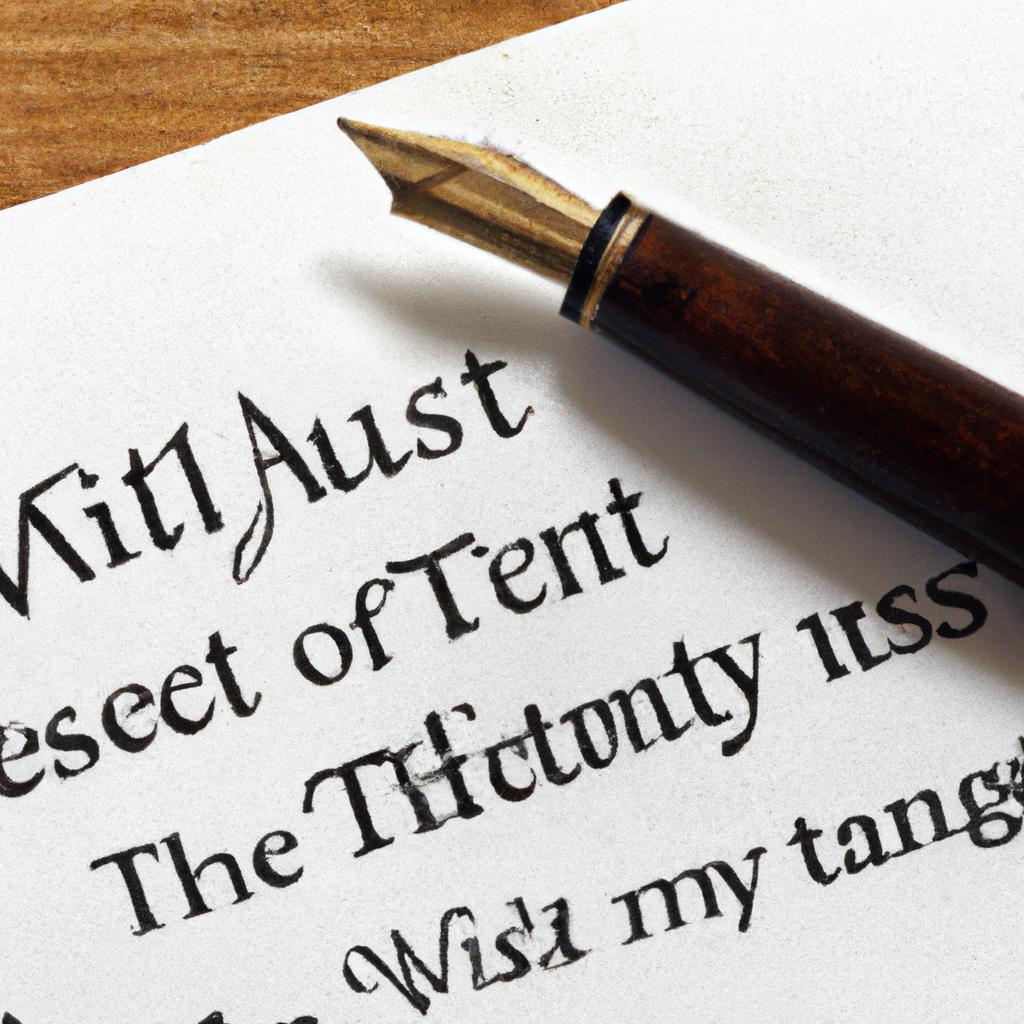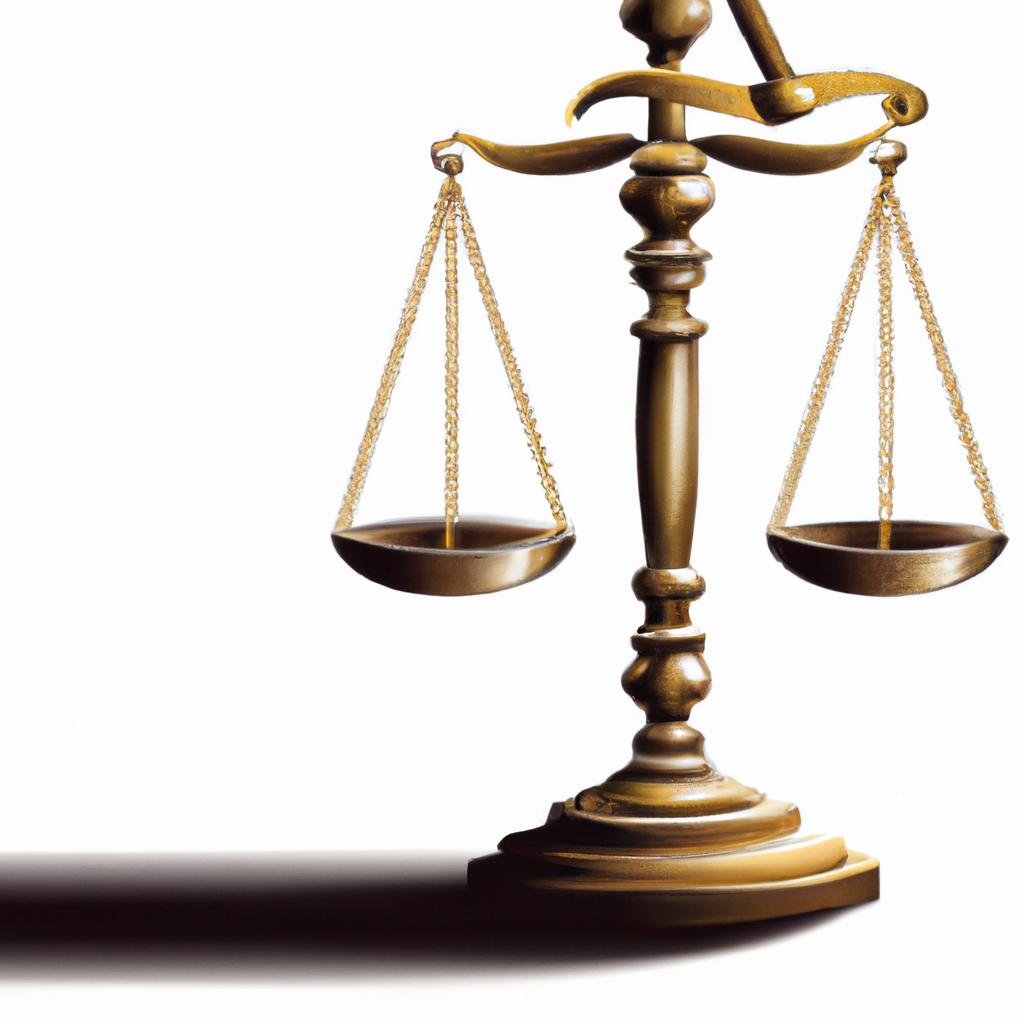In the realm of estate planning, the distinction between a last will and testament and a trust is often misunderstood. As seasoned legal practitioners at Morgan Legal Group, based in the bustling metropolis of New York City, we frequently encounter clients seeking clarity on the differences between these crucial instruments. Join us as we delve into the nuances of wills and trusts, exploring their similarities, differences, and unique roles in ensuring the seamless transfer of assets and preservation of legacies.
Key Differences Between a Last Will and Testament and a Trust
There are several that individuals should be aware of when planning their estate. While both documents are essential tools in estate planning, they serve different purposes and have distinct advantages and limitations.
Key Differences:
- A last will and testament goes into effect only after the individual passes away, while a trust can be utilized during the individual’s lifetime and after their death.
- Probate is required for a last will and testament, which can be a lengthy and costly process, whereas assets in a trust can avoid probate and be distributed more efficiently.

Understanding the Purpose and Function of a Last Will and Testament
When it comes to estate planning, many people often confuse a last will and testament with a trust. While both are essential components of a comprehensive estate plan, they serve different purposes and functions.
A last will and testament is a legal document that outlines how a person’s assets and belongings should be distributed upon their death. It allows an individual to designate beneficiaries, name an executor to oversee the distribution of assets, and specify any final wishes. On the other hand, a trust is a legal arrangement where one party, known as the trustee, holds assets on behalf of another party, known as the beneficiary. Trusts can be used to manage assets during a person’s lifetime and ensure their efficient distribution after death.

Unpacking the Benefits and Limitations of a Trust
Trusts and last wills and testaments are both important estate planning tools that can help ensure your wishes are carried out after you pass away. While they serve similar purposes in distributing assets to your beneficiaries, there are key differences between the two that are important to understand.
Benefits of a Trust:
- Allows for more control over how and when your assets are distributed.
- Provides privacy as trusts are not public record like wills are.
- Can help avoid probate, saving time and money for your beneficiaries.
| Trust | Last Will |
|---|---|
| Offers more privacy and control over asset distribution. | Subject to probate and public record. |
| Can help reduce estate taxes. | May result in higher estate taxes. |

Factors to Consider When Deciding Between a Last Will and Testament and a Trust
When deciding between a last will and testament and a trust, there are several factors to consider to ensure your assets are distributed according to your wishes. A last will and testament is a legal document that outlines how your assets and property should be distributed upon your death. On the other hand, a trust is a legal entity that can hold and manage assets for the benefit of beneficiaries. Both options have their own advantages and disadvantages, so it’s important to carefully consider your individual circumstances before making a decision.
Some factors to consider when choosing between a last will and testament and a trust include the following:
- Privacy: A last will and testament is a public document that becomes part of the public record upon your death, while a trust is private and does not go through probate, allowing for more confidentiality.
- Probate: A last will and testament must go through probate, which can be a lengthy and costly process, while a trust can help avoid probate altogether, saving time and money for your beneficiaries.
- Asset Protection: A trust can provide better asset protection for beneficiaries, as the assets are held in the trust and are not subject to creditors or legal claims.
Q&A
Q: Are a last will and testament and a trust the same thing?
A: No, they are actually two different legal documents with distinct purposes.
Q: What is the main difference between a last will and testament and a trust?
A: A last will and testament is a legal document that outlines how your assets and possessions should be distributed after your death, while a trust is a legal arrangement in which a trustee holds and manages assets for the benefit of a beneficiary.
Q: Can a last will and testament include provisions for a trust?
A: Yes, a last will and testament can establish a trust and designate a trustee to manage assets for the benefit of named beneficiaries.
Q: Which document is typically more complex to set up, a last will and testament or a trust?
A: Trusts are generally more complex to set up because they involve transferring assets into the trust and selecting a trustee to manage those assets according to the terms of the trust.
Q: How should someone decide whether to create a last will and testament, a trust, or both?
A: It is important to consult with a legal professional to discuss your individual circumstances, financial situation, and estate planning goals in order to determine the most appropriate legal documents to meet your needs.
In Summary
In conclusion, while both a last will and testament and a trust are important legal documents that outline how your assets should be handled after your passing, they serve different purposes and have distinct characteristics. It is crucial to consult with a legal professional to determine which option best suits your individual needs and circumstances. Ultimately, proper estate planning ensures that your wishes are carried out smoothly and efficiently, providing peace of mind for you and your loved ones. Thank you for joining us on this exploration of the differences between a last will and testament and a trust. May your future planning be thoughtful and secure.
 When it comes to planning for the future and securing your assets, there are many legal terms and documents that can sometimes be confusing and overwhelming. Two common estate planning documents that are often misunderstood are a last will and testament and a trust. While both of these documents are intended to protect and distribute your assets after your passing, they serve different purposes and have distinct differences. So, what exactly are a last will and testament and a trust? Are they the same or different? In this article, we will break down the definition, functions, and key differences between a last will and testament and a trust.
When it comes to planning for the future and securing your assets, there are many legal terms and documents that can sometimes be confusing and overwhelming. Two common estate planning documents that are often misunderstood are a last will and testament and a trust. While both of these documents are intended to protect and distribute your assets after your passing, they serve different purposes and have distinct differences. So, what exactly are a last will and testament and a trust? Are they the same or different? In this article, we will break down the definition, functions, and key differences between a last will and testament and a trust.
What is a Last Will and Testament?
A last will and testament, or a will, is a legal document that outlines your final wishes for how your assets should be distributed after your passing. It also appoints an executor, who will be responsible for carrying out your wishes and ensuring your estate is properly distributed. A will typically includes details about your assets, such as bank accounts, investments, real estate, and personal belongings. It also allows you to specify who will inherit your assets and how they will be divided. Without a will, your assets will be distributed according to your state’s laws, which may not align with your wishes.
Do I Need a Lawyer to Create a Will?
While there are DIY options for creating a will, it is highly recommended to consult with a lawyer. They can help ensure that your will is legally valid, properly drafted, and accurately reflects your wishes. A lawyer can also provide guidance and expertise on complex estate planning matters and help minimize the risk of your will being contested or found invalid.
What is a Trust?
A trust is a legal entity created for the management and distribution of assets. It involves a trustee, who is responsible for managing the trust, and beneficiaries, who will receive the assets. Unlike a will, a trust takes effect while the trust creator is still alive. There are two types of trusts: revocable and irrevocable. A revocable trust allows the trust creator to make changes or revoke the trust at any time, while an irrevocable trust cannot be changed once it is created.
Do I Need a Lawyer to Create a Trust?
Creating a trust is a complex legal process that requires the expertise of a lawyer. They can help ensure that the trust is properly structured and executed to meet your specific needs and goals. An improperly drafted trust can lead to legal and financial complications, so it is important to seek professional advice.
Key Differences Between a Last Will and Testament and a Trust
1. Timing: As mentioned, a will only takes effect after the testator’s (person creating the will) passing, while a trust takes effect during the trust creator’s lifetime.
2. Distribution of Assets: A will outlines how the testator’s assets will be distributed after their passing, while a trust allows for the management and distribution of assets during the creator’s lifetime and after their passing.
3. Assets Included: A will can include all assets owned by the testator, while a trust only includes assets that have been transferred to the trust.
4. Probate: A will must go through the probate process, which can be time-consuming and costly. On the other hand, assets held in a trust do not go through probate and can be distributed immediately after the creator’s passing.
5. Privacy: A trust is a private document and is not made public, while a will becomes a public record once it goes through probate.
Benefits and Practical Tips
Now that we have discussed the differences between a will and a trust, it is essential to understand the benefits and practical tips of each document. Here are a few key points to keep in mind:
– A will is relatively easy to create and is less expensive compared to a trust.
– A trust offers more control and flexibility in how your assets are managed and distributed.
– A trust can help minimize estate taxes and avoid probate costs.
– If you have minor children, a will can outline guardianship and support arrangements.
– Regularly review and update your will and trust to ensure it reflects your current wishes and circumstances.
– Consider consulting with a lawyer and financial advisor to determine the best estate planning strategy for your unique situation.
Case Study: Mr. Smith’s Experience
To better understand the importance of creating a will and a trust, let us look at Mr. Smith’s story. Mr. Smith created a will years ago, but he never updated it to include his newly acquired assets. Sadly, when he passed away, his will did not accurately reflect his wishes, causing complications and disputes among his family members. His assets also went through probate, resulting in costly legal fees and delays in distributing the assets.
On the other hand, Mr. Smith’s friend, Mrs. Jones, created a trust with the help of a lawyer. She was able to update the trust regularly and even made changes to the beneficiaries as her circumstances changed. When she passed away, her assets were distributed immediately according to her wishes, and her family was spared from a long and costly probate process.
In conclusion, a last will and testament and a trust may seem similar at first glance, but they serve different purposes and have distinct differences. It is crucial to understand these differences and determine which document is best suited for your specific needs and goals. Consulting with a lawyer and financial advisor can help you create an estate plan that protects your assets and ensures your final wishes are carried out. Remember to review and update your will and trust regularly to ensure they reflect any changes in your life.


